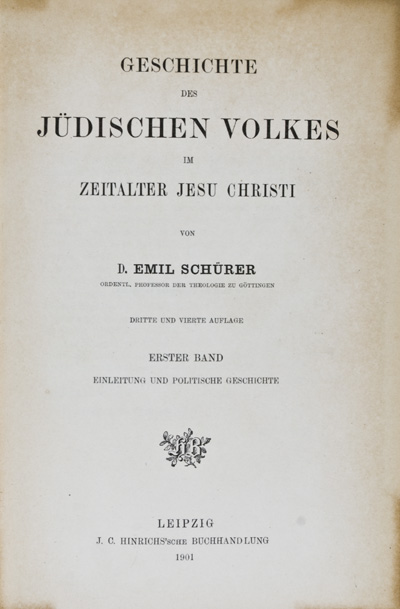
In this episode, Tim discusses the chronological components in the Infancy Narratives in greater detail, in particular Schurer’s Folly–the miscalculation by eminent German theologian Emil Schurer placing the death of Herod the Great in 4 BCE instead of the accepted date of 1 BCE.
But Herod deprived this Matthias of the High Priesthood: and burnt the other Matthias, who had raised the sedition, with his companions, alive. And that very night there was an eclipse of the moon.
[Josephus, Antiquities of the Jews, 17.6.4]
Matthew 2:1 states that Jesus of Nazareth was born “in the days of Herod the king”. Likewise, Luke 1:15 tells us that the angelic declarations to Zechariah and Mary concerning their children (John the Baptist and Jesus of Nazareth) occurred “in the days of Herod, king of Judea”. These references presuppose that Herod the Great was still alive when John and Jesus were born, thereby making the date of Herod’s death a critical chronological juncture.
Prior to the late 19th century, the majority of biblical scholars placed the birth of Jesus in either 3 or 2 BC, based in large part on the “remarkable consensus of the nine most important authorities”,[1] who placed the birth of Jesus within this timeframe.[2]
- Irenaeus
- Clement of Alexandria
- Tertullian
- Africanus
- Hippolytus of Rome
- Hippolytus of Thebes
- Origen
- Eusebius
- Epiphanius
Then, in the late 19th century, the eminent German theologian Emil Schürer published his magnum opus Geschichte des jüdischen Volkes im Zeitalter Jesu Christi (History of the Jewish People in the Time of Jesus Christ).[3] Schürer argued that the correct date of Herod’s death was in 4 BC, promptly rendering the “nine most important authorities” and countless other biblical scholars null and void, and axiomatically requiring Jesus birthdate to have occurred earlier. This date was accepted and repeated virtually without argument well into the 20th century even though it does not agree well with other general New Testament chronology. The result was predictable. Enormous numbers of 20th century biblical scholars limited the scope of their investigations into the birth of Jesus and related phenomena exclusively to 4 BC or earlier, failing to consider whether alternatives were even available.

[1] Jack Finegan, Handbook of Biblical Chronology (Peabody, MA: Hendrickson Publishers, 1998), p.291, §500.
[2] Likewise, prior to the late 19th century, the consensus of biblical scholars believed Herod died in 1 BC.
[3] Schurer, Emil. A History of the Jewish People in the Time of Jesus Christ. Reprint of the 1890 Edition originally published by T&T Clark, Edinburgh. First Division, Volume I. (Peabody, MA: Hendrickson Publishers, 2010).